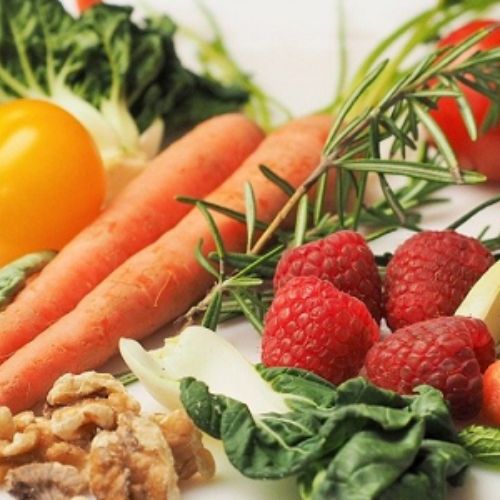Effects of Low Iron in Pregnancy and Does Low Iron affect Fertility?
Fertility & hormonal health are affected by many factors - some structural, some physiological, some genetic. The body’s pretty complicated and awesome! Some aspects of fertility & hormonal health are affected by nutritional deficiencies and in this blog, we cover one of the most problematic yet common nutrient deficiencies seen as Fertility & Pregnancy Acupuncturists - low iron.
See more on how we work with Fertility Acupuncture & Pregnancy Acupuncture.
Like some support for your journey?
Iron for Hormonal Health and Fertility
Iron is blood, which is life, quite literally!
We see SO many women in my clinic who have low iron levels, affecting their energy, moods and periods.
To avoid confusion in this blog, the word iron is used to mean blood iron levels AND ferritin which is your iron storage levels. Both need to be at healthy levels for your body to work well.
So how is fertility & hormonal health affected by nutritional deficiencies in general?
Well, when your body has enough energy and nutrients to make all the systems run well, it has enough left over for fertility & hormonal health. If your overall health is suboptimal, then regulating your hormones and making babies is considered a low priority by your body, if it has to choose between that and your survival.
This is a leftover mechanism from our hunter gatherer days, where if survival was threatened by either starvation or stress (like a lion that could eat you!), then being fertile and having children was not as important as keeping you alive.
By improving overall health (sleep, gut health, immunity, energy) your body has enough resources and energy to spare for hormones and fertility and baby making! Makes sense right? These aspects of your health are also really important to Chinese Medicine Practitioners when working with fertility.
How much Iron do you need to have?
Ladies, you need 18mg of iron PER DAY and 27mg in pregnancy (men need only 8mg!) from food or supplements. Consistently low iron intake, or if your body is losing it/not absorbing it/using it up for intense exercise, then your body will prioritise iron for just keeping you alive with basic functions. Again, regulating hormones and making babies are considered optional extras!
Conversely, if you DO have sufficient amounts of nutrients including iron, the body can keep you alive, function well AND keep your ovaries & uterus happy, which is obviously important for fertility and pregnancy.
How does low Iron affect fertility and pregnancy?
Low iron can mean your body doesn’t have the energy to produce or regulate fertility hormones well. It can drive up cortisol (a stress hormone like adrenaline), which descreases pelvic blood flow and redirects the building blocks of fertility hormones to making more cortisol.
Uterine lining thickness is important for holding a conception. You need a sturdy house to grow a tiny human in! While its not just iron (also Oestrogen and good pelvic blood flow) that determines uterine lining thickness, research has indicated that “thicker endometriums suggest greater iron reserves”.
Ferritin (iron storage) goes down in pregnancy unless you’re consuming and absorbing 27mg a day. This is due to the increased iron needs of the body and the baby in pregnancy. It’s best to check levels before and during pregnancy if they were already low.
It can be hard to supplement iron whilst nauseous with morning sickness - yet another reason to ensure good levels before conception if possible!
What is the risks of low Iron in pregnancy?
This article in the American Journal of Clinical Nutrition highlights some known risks of iron deficiency in pregnancy including:
Being a risk factor for preterm delivery
Low infant birth weight
“Mounting evidence indicates that maternal iron deficiency in pregnancy reduces fetal iron stores, perhaps well into the first year of life.”
Yikes!
Also, this 2019 study of 500,000+ women conducted over 13 years found “Anemia diagnosed earlier in pregnancy was associated with increased risk of the development of ASD, ADHD, and particularly Intellectual Disability in offspring.”
Association isnt necessarily causation. More research is needed, that said, this is quite a large study, done over many years.
For all women wanting to try for a baby in the coming months, testing Iron Studies as part of preconception health tests is highly recommended.
If you’re not looking to have babies, you may still need to check your iron levels for hormonal regulation, energy and immunity!
Signs and Symptoms of low Iron
You may have low Iron levels if you:
- Have light, irregular or very heavy periods
- Are vegan, vegetarian or eat minimal red meat, especially if you dont regularly supplement with iron
- Exercise most days or exercise intensly
- Have had gut issues for a while, you may not be absorbing iron
- Are really tired
- Often get dizzy or lightheaded
- Get floaters (flecks or black dots that come and go in your eyes)
- Have dark circles under your eyes
- Have hair loss or nails that break easily
How to test for low Iron
Get full Iron Studies, not just ferritin tested. If you were sick or have an inflammatory condition when you test, your ferritin will read higher than it really is. Full Iron Studies will tell you if you have enough iron. Ferritin will say if you have enough in storage. While transferrin & transferrin saturation % will indicate if you are absorbing/transporting the iron well enough from the gut and around the body.
In Australia, you’ll either need to get a pathology referral slip from your GP or fertility specialist or test your levels privately with easy to use online companies such as I-screen or IMedical.
Full Iron Studies is a blood test that doesnt require fasting and can be done on any day of your cycle for accurate results. Wait another couple of weeks after an acute illness like a cold to test.
What should my Ferritin and Iron levels be for optimum health & fertility?
Ferritin is your iron storage level. Ferritin levels are deemed “fine” by conventional medicine between 30-150mg/L. Some labs in Australia consider as low as 15mg/L to be normal! These ranges of 30-150mg/L are quite broad, they are also for the whole adult population. This includes 60 year old men as well as women in their 20’s-40’s trying to conceive! Due to increased iron demands, as well as ferritin often decreasing in pregnancy, (or just to feel really good!) you ideally want your ferritin in the middle of these ranges.
Again, iron supplements can make women feel nauseous if they get morning sickness, making it difficult to supplement in early pregnancy.
Best to get your levels in that upper mid-range before conceiving if possible or continue to test and supplement under guidance throughout your pregnancy if low.
What to do if your Iron levels are low?
Discuss with your doctor what might be causing this and if an iron infusion is needed
Supplement with the right form of iron
Eat more iron rich foods
Avoid gluten
Over the counter iron tablets can be hard to absorb for people who have gut issues.
Look for easier to digest forms of iron such as Iron Glycinate or Iron Amino Acid Chelate forms, rather than Ferrous form as they are gentler on tummies. Either take with a Vitamin C food or supplement or look for a brand with it included.Food sources of iron are important as they contain other vitamins and nutrients that help each other be absorbed but may not be enouch to correct a severe deficiency. To reach the daily recommended iron intake of 18mg or 27mg in pregnancy, you’re going to need a lot of food! An average 215g beef steak only has 4mg. Other meats such as chicken or pork have less than that. A 1/2 cup packed with cooked spinach only has about 3mg of iron. Here’s a list of other iron rich foods.
Avoiding gluten (and sugar) may help if you have an inflammed gut, not just for celiacs. Iron is absorbed in your intestines. If there’s any inflammation present, (eg loose, smelly or difficult to pass stools) it means less nutrients including iron are being absorbed. Read more from this World Journal of Gastroenterology article here.
There are many nutrients that are needed to make babies and have a healthy pregnancy. If you have abnormal periods, having difficulty conceiving or aren’t feeling well in your pregnancy, it’s recommended to test to see if you need extra nutritional support. Unless you have a condition called Haemochromatosis, taking excellent prenatal vitamins with iron, activated folate (NOT folic acid) for at least 3 months prior to conception is best. Naturobest, MyGen,Thorne and Eagle are generally good options.
Having information on possible nutrient or hormonal insufficiencies is SO important for fertility and pregnancy. It’s like working out how much of each ingredient you have ready to make/grow a healthy baby. But it’s also how your body puts all these ingredients together that’s important. Reduced pelvic blood flow and stress can impact nutrient absorption and distribution throughout the body which is where Acupuncture and herbal medicine come in!
Here is more info on how that works.
This is the first in a series of blogs explaining the importance of key nutrients for fertility & pregnancy - more soon!
p.s - I get zero $ or incentives for recommending lab testing, just providing helpful info for you all.
- Shout out to Dr Clare Pyers (TCM) for sharing all her Integrative Medicine wisdom!
This is general information, every woman is different.
If you’d like to have more personalised information and healthcare,





